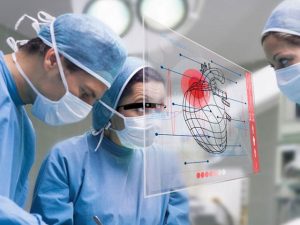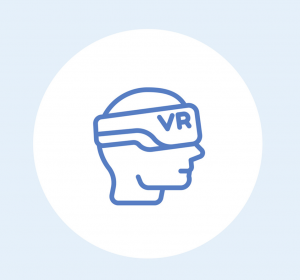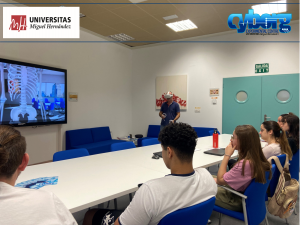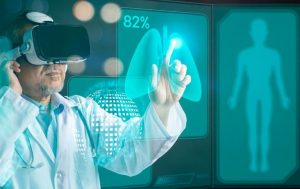Virtual Reality
26 February 2026
Problem-solving-based learning, communication skills training, and simulation-based learning are making a strong inroad into health-related curricula.
 With the intention of providing clinical learning experiences, and due to the inherent difficulties in doing so in person, simulation, understood as the recreation of a clinical event or the training of a technique in the most reliable way possible, has gained momentum as a method of delivering experiential learning.
With the intention of providing clinical learning experiences, and due to the inherent difficulties in doing so in person, simulation, understood as the recreation of a clinical event or the training of a technique in the most reliable way possible, has gained momentum as a method of delivering experiential learning.
Simulation is an educational technique where the student acts as they would in real life and then provides feedback and information on performance, making it a very effective learning technique.
Virtual Reality is positioned as a teaching reality present in a very short time since it allows the creation of ideal scenarios on which to interact, learn or train the use of new technologies in controlled and supervised environments, aligning with the curricula of the Medicine degree and incorporating immersive digital technologies that provide a space where the student can interact without the limitations and obstacles of the real and physical world, allowing the observation and examination of areas and events inaccessible by other means.
The use of Virtual Reality in Medicine is advancing at an increasingly rapid pace, and in a very short time we will be able to see it implemented in Hospitals, Health Centers, Research laboratories and, of course, Universities, especially in the field of health sciences. health.
A factor that makes Virtual Reality very special is its ability to adapt to different medical disciplines and it is precisely for this reason that this training and learning system opens up numerous possibilities for health professionals in a more cheap and decentralized…..Student training, surgical operations or treatment of diseases such as Alzheimer’s, Reduction of phobias, Fighting obesity or Childhood Autism, are some of the most outstanding.

To give an example of the advantages and benefits that could be obtained with the use of Virtual Reality in the field of surgery… the costs of using corpses and animals would be reduced, both in teaching and in practice, we could do without of the practices with real patients, the training could be repeated as many times as desired, greater experience in various pathologies and derived complications would be offered, there would be greater specialization in each patient or the risk of the operation and the risk of the operation would be analyzed more accurately. postoperative treatment.
At the Cyborg Experimental Center, we believe that the great challenge is not in the hardware nor in its multiple applications, but in understanding how it can be used to solve some of the most common obstacles or biggest shortcomings in the health industry.

The objective, within this field, of the Cyborg Experimental Center is to help the Miguel Hernández University of Elche position itself, in a prominent way, among the reference centers in the use of Virtual Reality within the field of Computer Sciences. health.
Reports prepared by the Cyborg Experimental Center: (Reports only available in Spanish)
- Aplicaciones de la Realidad Virtual en la Medicina.

- Equipamiento necesario.

- Aplicaciones informáticas y software de Realidad Virtual en el ámbito de la Salud.

- Informe resumido sobre la Realidad Virtual y la Medicina.

- Estadísticas.

Videos of Interest:
